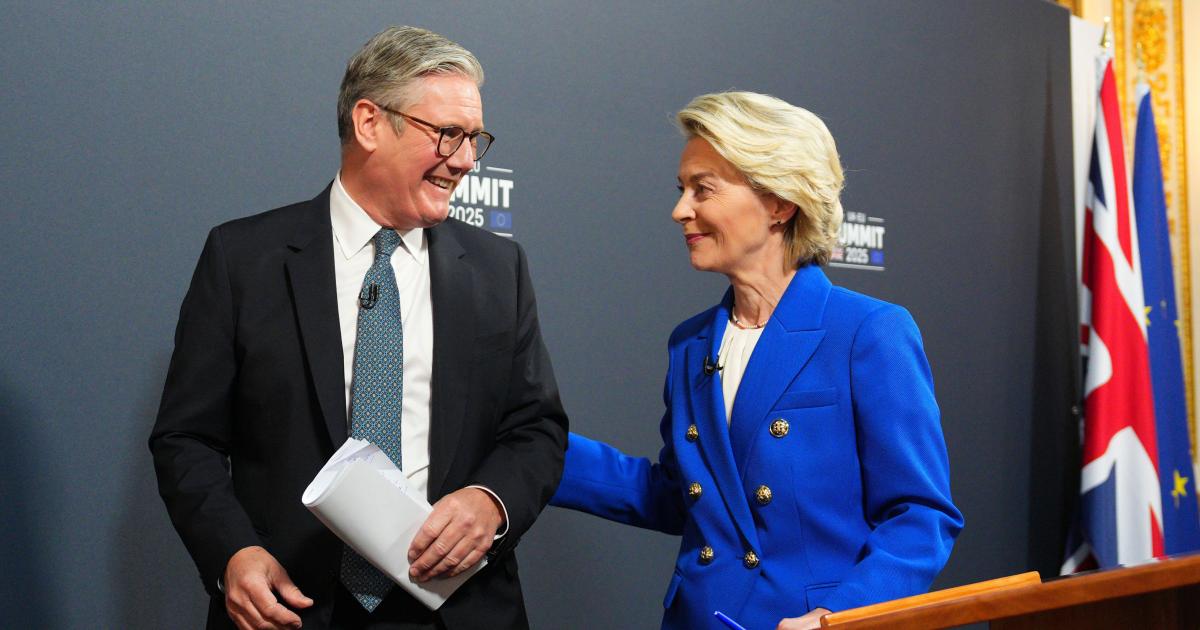UK negotiators have emerged from talks with their EU counterparts with a wider ranging deal than looked to be on the cards. It maintains the red lines on not rejoining the single market as a whole or the customs union, and on not returning to freedom of movement, but beyond that it sees the UK negotiating selective participation in parts of the single market for agri-food and electricity in return for accepting “dynamic alignment” and a role for the European Court of Justice – on a similar basis to that already conceded by Boris Johnson for Northern Ireland.
The agri-food deal should help GB exporters who have found negotiating border controls burdensome and make the UK a slightly more attractive market for EU exporters, with the potential to reduce prices. The deal on energy means avoiding a future nightmare of the UK and the EU levying competing Carbon Border Adjustment Mechanisms (though the UK will have to align with the EU’s emissions trading scheme and carbon prices here may rise as prices in the EU are higher).
The other big prize the UK landed was the defence and security partnership, but as yet it does not seem to have completely nailed down UK participation in the big EU defence procurement programme – that is to be done “swiftly”.
The surprise in the deal is not the e-gates announcement (which in the official communique looks little more than a repetition of what will happen when the new EU entry exit system finally comes in) but in the strong emphasis on cooperation around law enforcement and on irregular migration. The “safety” bucket of Europe minister Nick Thomas Symonds’ three buckets (the others were security and prosperity) has more in it than had been trailed.
The government has had to learn the art of the EU deal
The UK has, of course, had to pay a price for this deal. It cements the quota deal that Boris Johnson negotiated on fish for 12 years after its expiration in 2026. That will disappoint some fishers hoping to take back more control of our waters (though a Dutch journalist at the press conference EU queried the failure to get a permanent deal for EU fishers) , but others who have lost business exporting to the EU will benefit from the reduced risk and costs of exporting to the EU market. But Johnson had already conceded de facto linkage to energy trading so even here the UK’s cards were limited. And at a stroke the UK has reduced the potency of the Irish sea border with Northern Ireland, which was largely about agri-food.
The UK has also had to backtrack on its opposition to a youth mobility scheme with the EU. Having suggested through the autumn that this looked like a return to freedom of movement, the government has in recent weeks started to assure people that it isn’t.
And the UK has also conceded a willingness to dynamically align with the EU (no domestic detail on how that might work) with a limited “decision-shaping” role before the EU decides on new rules and to allow the ECJ to adjudge issues of EU law even though disputes will go to an arbitration panel. This mirrors arrangements that Boris Johnson signed up to in the Withdrawal Agreement.
There is a lot of negotiation still to come and the government needs to show benefits – fast
For all that the leaders hailed this as “turning a new page”, most of the book remains to be written. There is a lot of detailed negotiation to come, and the politicians will need to be prepared to come back time and again to unlock impasses between officials. And the detail may yet prove fraught – there is a mountain of fudge on what the youth mobility scheme might finally look like. Other avenues for exploration – for example on creative artists or professional qualifications, both asks in Labour’s manifesto, may prove dead ends.
The government’s repeated reset mantra has been “ruthless pragmatism” – from the ideological approach that characterised the original negotiations to one that works for the UK. It now needs urgently to show that this approach does indeed deliver their three objectives on jobs, bills and borders. Then its bet that most people would rather not talk about Brexit but are open to undoing the hardest edges of Brexit when it offers real benefits should pay off. But if all this gets mired in a never ending negotiation about incomprehensible minutiae and EU arcania, then the positive mood at the summit may rapidly sour.
